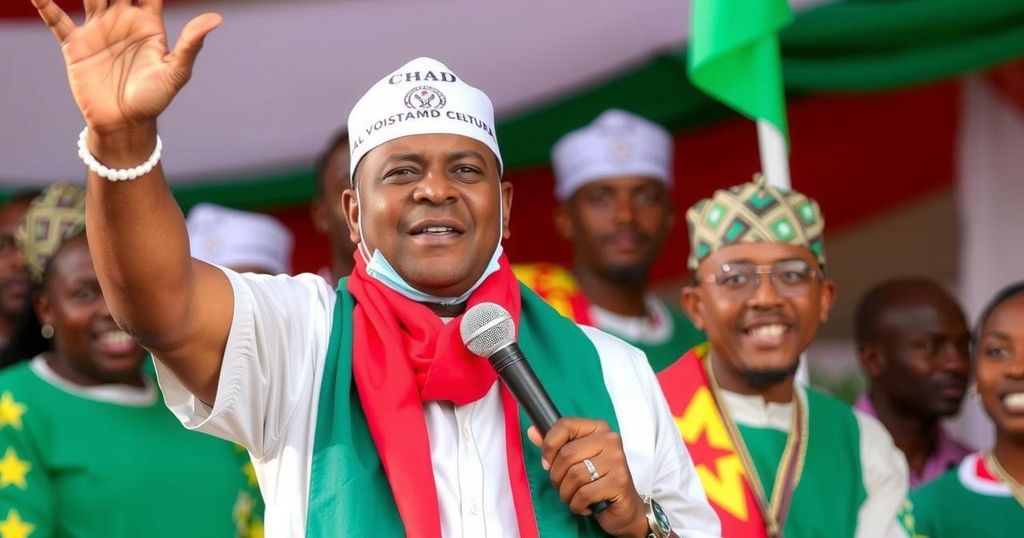Chad’s Ruling Party Secures Majority Amid Opposition Boycott
Chad’s ruling Patriotic Salvation Movement won 124 out of 188 parliamentary seats in an election marked by a boycott from major opposition parties. The election, seen as crucial for the country’s democratic transition following Mahamat Idriss Déby’s military rule, witnessed a voter turnout of 51.5%. Opposition groups labeled the election a ‘charade’ amid concerns over its legitimacy and electoral integrity.
In a parliamentary election held last month in Chad, the ruling Patriotic Salvation Movement party emerged with a significant majority, winning 124 out of 188 seats. This election marked the first parliamentary vote in over a decade and took place amidst a boycott by the principal opposition parties. The voter turnout registered at 51.5%, as per provisional results disclosed by electoral commission chief Ahmed Bartchiret. Following a history of military governance post-Idriss Déby, this election was seen as a crucial step in the country’s democratic transition.
The elections were held as a vital component of Chad’s transition to democracy after Mahamat Idriss Déby, son of the late president Idriss Déby, assumed power as a military ruler in 2021. This development followed the elder Déby’s death, who had commanded the nation for thirty years. Mahamat Déby expressed optimism about the elections, stating they would facilitate “the era of decentralization so long awaited and desired by the Chadian people.” However, this hope was fiercely criticized by opposition parties, who condemned the electoral process, branding it a “charade” and predicting a repeat of the controversial presidential vote from the previous year.
Chad has experienced a tumultuous political landscape over the last several years, characterized by transitions in leadership and political unrest. Following the death of long-serving President Idriss Déby in 2021, his son Mahamat assumed power and pledged to restore democracy after years of military rule. The recent parliamentary elections were positioned as a pivotal step in this agenda, seeking to distribute political power more broadly to regional and municipal levels, thus potentially addressing calls for decentralization by the populace. However, the significant boycott by opposition parties raised questions regarding the legitimacy and inclusiveness of the electoral process.
The ruling Patriotic Salvation Movement’s decisive victory in Chad’s parliamentary elections, despite opposition boycotts, indicates a consolidation of power for President Mahamat Idriss Déby. These elections, viewed as a critical element of the country’s path towards democracy, compounded by existing security challenges, reveal an ongoing struggle between the current regime and dissenting political voices. The lack of participation from major opposition parties suggests significant divisions within Chad’s political framework that may continue to hinder democratic progress.
Original Source: www.seattletimes.com




Post Comment